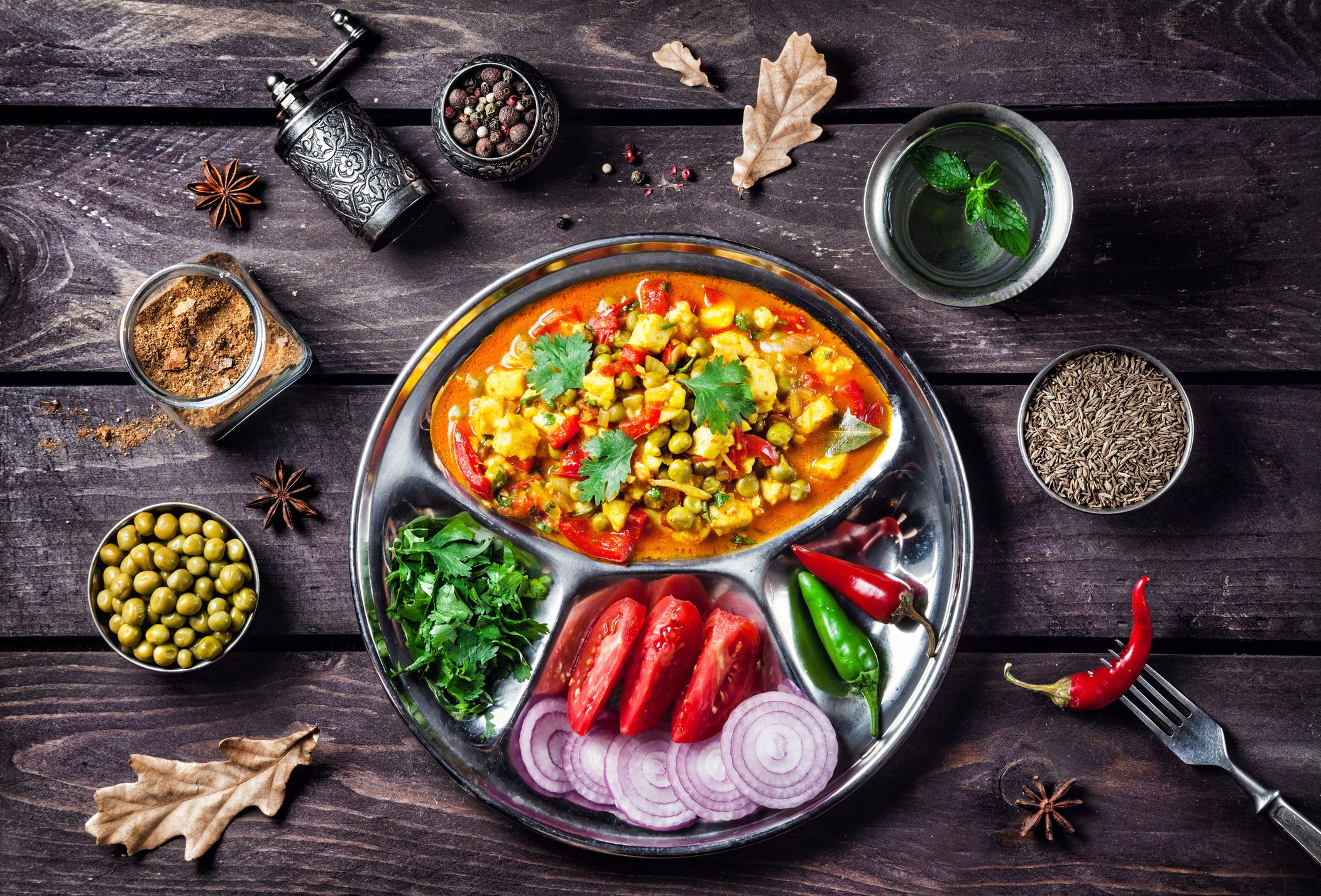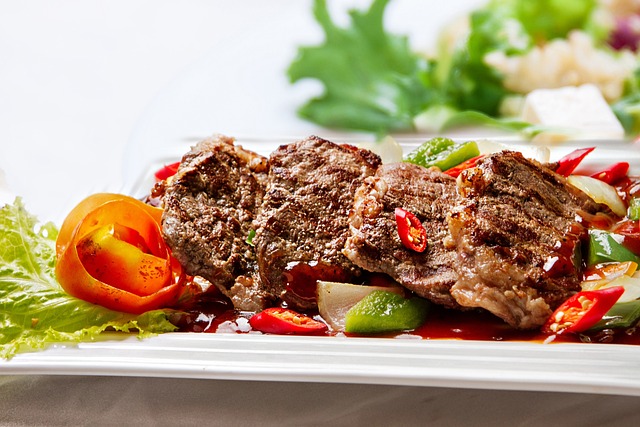In the tapestry of wellness traditions, Ayurveda, the ancient Indian system of medicine, holds a unique place. It views food not just as fuel, but as a powerful tool to influence our physical and mental well-being. Dinner, in particular, takes center stage in this philosophy.
This article explores the core principles of Ayurvedic dinners, delves into the concept of doshas, and offers delicious recipe ideas to create balanced and soul-satisfying evening meals.
The Art of Ayurvedic Dinners: Cultivating Balance Through Digestion
Ayurveda emphasizes the importance of agni, the digestive fire, for optimal health. A balanced agni ensures proper digestion and nutrient absorption, while a weak one can lead to various health issues. Dinners, following this philosophy, should be designed to support agni and promote optimal digestion.
Here are some key principles to guide your Ayurvedic dinner choices:
- Embrace Lighter Fare: Compared to lunch, dinners should be lighter. This allows your body to focus on digestion and rejuvenation during sleep. Opt for easily digestible foods like vegetables, lentils, and moderate portions of lean protein.
- The Power of Cooked Foods: Raw foods can be more challenging to digest, especially at night. Ayurveda recommends consuming cooked foods at dinner to ease the digestive burden. Steaming, boiling, and stir-frying are excellent methods for preserving nutrients.

- Warm and Soupy Comfort: Warm and soupy dishes are considered ideal for Ayurvedic dinners. They are comforting, easy to digest, and promote a sense of well-being. Soups can be made with a variety of vegetables, lentils, or light broths.
- Spice Up Your Digestion: Spices play a vital role in Ayurveda. They not only add flavor but also aid digestion. Some recommended spices for dinner include cumin, coriander, fennel, ginger, and turmeric. Experiment with different combinations to discover your favorites.
- Seasonal and Local Bounty: Fresh, seasonal, and local produce is a cornerstone of Ayurvedic meals. These ingredients are at the peak of their nutritional value and are more aligned with the current season. Visit your local farmers market for inspiration!
- Minimize Sweeteners and Processed Foods: Sugary desserts and processed foods can disrupt digestion and negatively impact sleep. Opt for natural sweeteners like honey in moderation and limit processed foods at dinner.
Understanding Your Dosha: Personalized Ayurvedic Dinners
Ayurveda recognizes three unique mind-body types known as doshas: Vata, Pitta, and Kapha. Each dosha has specific characteristics and dietary needs. To create an optimal Ayurvedic dinner, consider your dominant dosha:
- Vata Dosha: Individuals with Vata are generally light, energetic, and prone to dryness and anxiety. A Vata-pacifying dinner should be warm, grounding, and slightly oily. Include cooked vegetables, root vegetables, warm soups, and small portions of easily digestible grains like basmati rice.
- Pitta Dosha: Pitta individuals are fiery, passionate, and prone to excess heat. A Pitta-pacifying dinner should be cooling and soothing. Opt for vegetables with cooling properties like leafy greens, cucumber, and celery. Choose lean proteins like fish or chicken and avoid spicy or acidic foods.
- Kapha Dosha: Kapha individuals are heavy, stable, and prone to sluggishness. A Kapha-pacifying dinner should be light, stimulating, and slightly warming. Include vegetables like broccoli, cauliflower, and green beans. Opt for small portions of lean protein and avoid dairy products and heavy grains.
A Culinary Adventure: Ayurvedic Dinner Recipe Ideas
Here are some recipe ideas to ignite your passion for creating delicious and nourishing Ayurvedic dinners:
- Kitchari’s Comfort: This simple yet nourishing dish is a staple in Ayurveda. Kitchari combines rice and lentils, providing a complete protein source and promoting easy digestion. You can customize it with vegetables and spices according to your dosha.
- Aromatic Vegetable Curry: Fragrant and flavorful vegetable curries are perfect for Ayurvedic dinners. Choose vegetables based on your dosha and season them with warming spices like ginger, turmeric, and cumin. Coconut milk can be added for a creamy texture.

- Lentil Soup’s Warmth: A warm and comforting lentil soup is a perfect choice for a light and satisfying dinner. You can add vegetables like carrots, celery, and tomatoes for additional nutrients and flavor.
- Roasted Vegetables with a Spicy Touch: Roasting vegetables brings out their natural sweetness and creates a delicious side dish. Season them with Ayurvedic spices like cumin, coriander, and fennel seeds.
- Basmati Rice with Herbal Flair: Basmati rice is a light and easily digestible grain that pairs well with various Ayurvedic dishes. Infuse it with fresh herbs like cilantro or parsley for an extra touch



